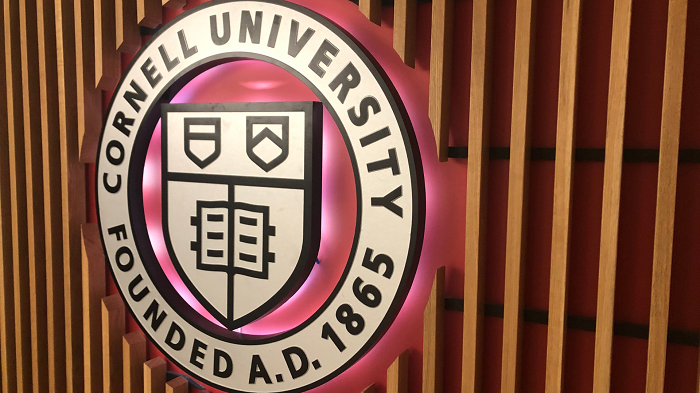Reimagined Student Support and Advocacy Services to holistically support, empower students
The mission of Cornell University’s Student Support and Advocacy Services is to assist students in navigating difficult life events and crisis situations that have the potential to impact their ability to be successful in and out of the classroom. Previously known as Care and Crisis Services, the newly reimagined office utilizes a student-centered and individualized approach to holistically support and empower undergraduate, graduate, and professional students.
Positioned within the Office of the Dean of Students, in Student and Campus Life, the office serves as the central point of contact for students, families, and community members, and collaborates with campus partners to holistically support students through a trauma-informed lens, as they navigate challenging and distressing life circumstances.
“The Office of the Dean of Students functions as advocates and supporters of students and their Cornell experience,” said Marla Love, Robert W. and Elizabeth C. Staley Dean of Students. “Student Support and Advocacy Services embodies our purpose in their work as facilitators, guides, and connectors when students are experiencing situations where support is critical and needed.”
Greta Kenney, senior associate dean of students for student support and advocacy services, said the office has been doing important work for a long time. “For many years, though, it’s been behind-the-scenes, and this reimagining is, in part, about making the work more visible—putting it out there, so students and the broader Cornell community know we’re a resource.”
The office recently launched a new website, which it hopes will help increase visibility of its resources and focus areas, which include campus-wide student support and crisis response services. Case management consists of building 1-on-1 helping relationships with students while coaching them toward resources, self-care, and self-advocacy.
Students can also get connected to Day-time support by walking in the office at 200 Willard Straight Hall or calling the office at 607-254-8598. After-hour support is available from an Administrator On-Call (previously called Crisis Managers) for students who are navigating high-level and time sensitive distressing situations.
“There are trends we’re seeing nationally – including at Cornell – that college students’ mental health challenges are up, while resiliency and sense of belonging may be down,” Kenney said. “One positive that we’re seeing, I believe, is an increase in students seeking out help and support. They know they don’t have to go it alone.”
Kenney said services across the university understand a student’s academic life on campus is just one facet of their lives and identities. Because of this, Student Support and Advocacy Services is prepared and available to provide direct, holistic support for any challenge a student is facing—inside or outside of the classroom.
One of the new process the office is the launch of a referral form that anybody—students, faculty, staff, parents, roommates, friends, etc.—can fill out and submit if they are concerned about a student so that the office can proactively reach out and connect. According to Kenney, these concerns can be about anything from significant shifts in mood or behavior, food insecurity, patterns of decline in academic work, mental health challenges, and so on.
“Our goal with this form is to be better able to outreach to students who may be struggling,” she said. “We see this as a key response to the Mental Health Review recommendation about identifying people in need of care.”
“Maybe they’re struggling to navigate the decentralized nature of Cornell, maybe they have a family emergency back home, maybe they’re coming to terms with a new mental health diagnosis—and maybe it’s having an impact on not just their academic life, but at their on-campus job, in their friend group, on their mental health,” Kenney said. "Our office recognizes that Cornell students are whole humans with full, complex, nuanced lives worthy of response and support.”
To empower students, the team uses strengths-based frameworks in their work that taps into a student’s individual self to identify the path they want to take forward. “It’s not our job to tell a student how to navigate a challenging life experience,” Kenney said. “Instead, we work collaboratively with the student to help them identify what supports and resources would be helpful.”
The office’s reimagining comes out of the recommendations from a full organizational review process, Cornell’s Mental Health Review, and best practices for this work in higher education. Specifically, focusing on the need to increase mental health services, encourage help-seeking behaviors, and identify people in need of care.
“We hope to play a greater role in moving the dial on those recommendations, as well as help be a part in the shift of campus culture,” Kenney said. “I think we have a critical role to play in destigmatizing struggles of all kinds and increase help seeking behavior. We want to be known as a place where students go to receive help, no matter the issue.”

